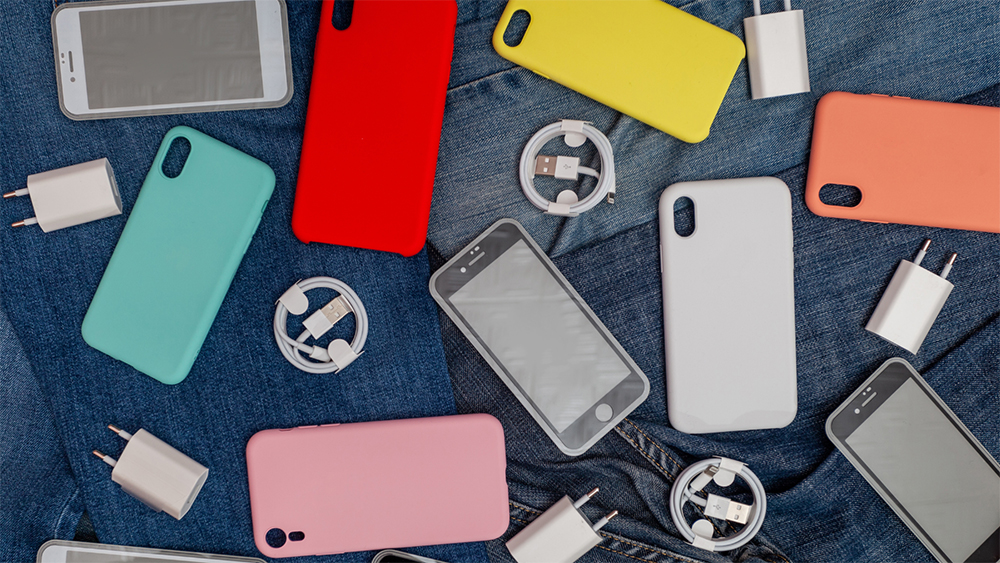
School, Safety, and Screens: Let’s Talk About Phones
Parents & Carers, Senior School, Personal Development, Family Wellbeing, Junior School, Early Learning, Student Wellbeing
Dear Parents and Carers,
One of our great priorities at the College is the safety and wellbeing of all our students. Sometimes this is in relation to the physical environment, however, increasingly there is a need to consider student safety online.
Smart Phones have become a part of modern day life with many people relying on them every day. For all their benefits, smartphones also carry a plethora of dangers, particularly when it comes to young people. Dr Marshall Ballantine-Jones recently presented to staff and parents about the impact of smartphones on our young people, particularly with regards to their safety, brain development and exposure to inappropriate/dangerous content. During his presentation, he encouraged people to read the book ‘The Anxious Generation - Jonathan Haidt’ where some of these concerns are considered at greater depth. I have taken on board his advice and have been listening to the audiobook on Spotify; something I would encourage you to consider.
Smartphones typically provide users with unfiltered access to content from a vast domain of sources. Unfortunately, there are creators of malicious content that purposely embed adult content in children’s software, videos and games, targeting young people. Smartphones also provide young people with access to social media platforms including Tik Tok, Snapchat, Discord, Instagram etc. that have been heavily linked to narcissism, body image concerns, eating disorders, online bullying and poor mental health. These activities are highly addictive and impact brain development, the ability to learn and engage academically, develop socially and lead to poor sleep habits.
As a result of research into this area, the Australian Federal Government passed legislation in late 2024, to ban social media access for young people under the age of 16. Currently, it is illegal for children under the age of 13 to hold accounts on these platforms, but there is no effort by authorities to enforce this. These new laws will come into effect in December 2025, with the government working hard to develop technology that will stop those under 16 being able to gain access. This is a huge win in trying to protect our young people and many parents have expressed their joy, feeling they have largely lost the battle in being able to restrict their children accessing these platforms. In the meantime, may I encourage all parents to consider their own children’s access to devices and these types of platforms.
Given the dangers of smartphones, it is our strong recommendation to not allow access to these devices until later in high school. Many parents raise concerns for the safety of their children as a reason for providing a phone. However, smartphone access opens up young people to significant safety concerns only seen in the online environment. There are many mobile phones that are not smartphones (eg. Nokia 3210), that may be a suitable option for your child. These phones allow users to make phone calls, send text messages and other basic tasks (think Nokia phones from the early 2000’s). Often they include a radio or MP3 player and have significantly longer battery life (some up to 27 days!). If your child needs to take a long bus at the end of the day, encourage them to socialise with peers, read a book or comic, work on some home learning or a puzzle book, or listen to some music or the radio. Did you know that the majority of students in years 5 and 6 do not have mobile phones? In fact there are large numbers of students in year 7, 8 and 9 that also do not have mobile devices. When surveyed after school camps last year, students wrote that they felt far less stressed by not having their phone as it usually absorbs so much of their attention.
Aligned with the NSW mobile phone school laws, Nowra Anglican College has a ‘gate to gate’ mobile phone and smartwatch policy. No student is to access their device on school grounds, unless they are in the school office and given explicit permission. If a parent needs to contact a student during the school day, they need to do so via the office. All mobile phones need to be stored in a student’s bag during the day (in lockers in Senior School). Students are not to carry their phones in their pockets as research tells us that this causes a constant distraction, even when the device is turned off. Also, there is a temptation to use phones in the bathroom; something that can potentially lead to serious incidents. Schools are generally safe places to make mistakes and learn from them. However, by involving phones, mistakes often escalate significantly with consequences sadly moving beyond the school and requiring police involvement. We are trying to provide our students an environment where they are able to manage their distractions and communicate face-to-face with their peers.
May I encourage you to strongly consider the impact of devices on your child and whether their current situation best serves their needs. We have already had many conversations with parents that have made the decision to switch their child’s smartphone with a ‘dumbphone’ or delay their purchase of a phone for their child. We have the opportunity to make these decisions as a collective community, supporting our children and each other in the process.
If you have any questions regarding this issue, or you are particularly passionate about this area and would like a conversation, please don’t hesitate to contact me.
Kind regards,
Ben Bridges
Deputy Principal - Wellbeing and Growth